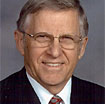Commentary on Acts 2:1-21
One could preach many sermons on this marvelous text making a whole variety of points.
Our denominational emphases will lead us to a wide range of ideas that need to be emphasized in preaching this text.
It is a problem for us that the Pentecost story in Acts 2:1-2:47 is cut in half by the pericope system. The whole of Acts 2 is a unit of Lukan thought that ought not be divided.
This story is a kind of summary of Luke’s second volume. Luke’s first volume led us from the birth of Jesus in Bethlehem to the climactic events of his life in Jerusalem. Acts, on the other hand, moves us from Pentecost in Jerusalem to the ends of the earth.
To Jerusalem. From Jerusalem. That’s Luke’s outline.
Luke tells this story in three parts:
- Acts 2:1-13, the miracle of Pentecost
- Acts 2:14-40, Peter’s keynote address
- Acts 2:41-47, announces a summary of the Pentecost story and points to the messianically restored, Spirit-filled church that is the true Israel
A first recommendation for preaching is that you tell this whole story, Acts 2:1-47, in your own words.
You can tell this story in various ways for various people. Call up the kids to hear part of the story. Project appropriate visuals to help people follow the story. Enact the story. Be creative!
A favorite dictum of mine is that the biblical story is almost always more important than our points about the story. You might wish to simply tell the story and close with a prayer. It is vital that we bring these stories alive to people so that they carry them in their inner being.
You might ask at the end of your telling of the story, “Where do we fit into this Pentecost tale?” Acts 2:38 gives the basic answer to that question. We are invited to a life of daily repentance and remembrance of our baptism. We are invited to receive the gift of the Holy Spirit.
Holy Baptism is a foundational moment when the gospel message of forgiveness of sins was spoken and the gift of the Holy Spirit washed over our lives for the very first time.
In my tradition, this text could be seen as a call to a daily renewal of trust in the forgiving promise and the gift of the Spirit offered to us in this sacrament instituted by Jesus Christ. In other traditions, emphases will be found in underscoring God’s gracious act of forgiveness and the outpouring of the Holy Spirit.
You could also tell this story making your points as you go. What follows is intended to help you see some possible directions you might take. In this brief space, we can only scratch the surface of the depths that are before us.
Verses 1-4: Pentecost was a Jewish festival which was celebrated fifty days (hence pente) after the first harvested sheaf of the barley harvest (cf. Leviticus 23:15-16). That’s why Jews from all over the world were in Jerusalem at this time.
A sound of mighty wind was heard. We remember that the Hebrew word we translate as spirit means wind or breath. This is, therefore, an event of the coming of the Holy Spirit.
There were also tongues as of fire. Wind and fire signal the presence of Yahweh. The disciples were filled with the Holy Spirit and they began to speak in other dialects.
Verses 5-13 record the incredible event of the disciples preaching the good news of Jesus Christ in the tongues of the grand variety of people who were gathered that day. Babel is reversed. Scattered peoples and languages can all understand the mighty works of God. Here, too, Luke drives home his point that the works of God are meant for all peoples. This is a very important reality in the multi-cultural world that we now inhabit.
Verses 14-21 give us Peter’s sermon. His first point is that what has been witnessed on this wonderful Pentecost day is the fulfillment of the prophet Joel’s words. God is pouring out his spirit on all flesh! Whoever calls upon the name of the Lord shall be saved (Acts 2:21). This may be the theme of the entire episode.
Verses 22-36 give us a sermon about Jesus. Imagine! Pentecost Day, the outpouring of the Holy Spirit, and the sermon is about Jesus. Jesus is the author of Pentecost. Note verse 23 – we dare not miss this reality about Pentecost. Clearly, Jesus is its author!
Your sermon on this Sunday must also center in the work of Jesus. Israel can then know (cf. Acts 2:36) that God has made Jesus both Lord and Christ, Yahweh and Messiah.1 It is Jesus who mediates the Holy Spirit; who is able to perform healing miracles through his community; to whom prayers are to be addressed; who is the appointed judge of the world; and who is inseparable from and subordinate to God.
Verses 37-40 are the invitation to salvation which we have touched on briefly above. The call to repentance is the universal call to all people to turn from their own ways and to turn to God in Jesus Christ. God offers the Holy Spirit, new life, and forgiveness of sins to all who will receive.
Lastly, verses 42-47 give us a glimpse of the church as an alternate community in human history. They centered their life on the teaching of the apostles, fellowship, and the breaking of bread. Signs and wonders were performed. Today, many of the fast-growing churches in the global south exhibit these marks of healings and works of social justice. The church always works for the good of the whole community.
1See Luke’s birth story in Luke 2:1-14, especially verse 11 for this same reality of the dual nature of Jesus. God enthrones Jesus as Lord and Christ.

May 31, 2009